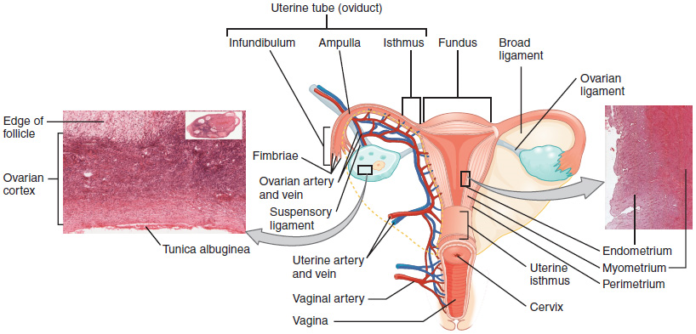Signs and Symptoms of Cervical Cancer
Dr. Th. Tomcha,Sr. Consultant, Radiation Oncology
American Oncology Institute
Cervical cancer, also known as Womb Cancer, is the fourth most common cancer in females worldwide and the third most common in both India and Manipur. Approximately 1 lake new cases are diagnosed worldwide every year. Luckily, the disorder is on the decline. A decade back, it happened to be the most common female cancer in both India and Manipur. It is one of the leading causes of death in women.
Risk Factors: Exposure to these increases the chances of developing the disease.
- Human Papilloma Virus (HPV): It has the highest risk factor associated with more than 90% of cervical cancer. The most common HPV variants associated with cervical cancer are HPV 16 & 18. The presence of the virus to the husbands also exposes their wives equally.
- Early Marriage: Early marriage before 18 years increases the chances of developing the disease. If sex life is started before 16 years, the increase is very significant.
- Multiparity: There is exponential increase in risk factor with more childbirths (more than 2).
- Multiple Sexual Partners: Having sexual relations with multiple partners increases the risk factor.
- Smoking: Increases the chances of developing the disease.
- Hygiene: Hygiene of private parts of both husband and wife is related with the disease
- HIV: As HIV positive women has a low immunity, they have higher chances of developing cervical cancer.
- Mothers who took hormone replacement therapy like Diethylstilbestrol increases the incidence of the disease in their daughters.
- Low and Middle Income group: 90% of cervical cancer develops in this group. This is because of lack of micronutrients in their diet and private bathrooms thereby compromising with personal hygiene.
Presenting Symptoms:
- Bleeding after Intercourse: This is the first symptom of cervical cancer and must be regarded as a warning sign.
- Vaginal Discharge (May or may not be foul smelling): This is the commonest symptom.
- Bleeding per Vagina: Unusual bleeding like in post-menopausal ladies (When menstruation has been stopped) and bleeding in between menses in pre- menopausal ladies are suspicious symptoms of the disease.
- Pain Lower Abdomen: Due to the tumour mass effect, there may be pain in lower abdomen. This pain may be referred to the back and later to upper thigh even.
- Constipation: The tumour mass may cause compression of rectum and cause constipation.
- Constitutional Symptoms: Weakness, loss of appetite, pallor, fever, loss of weight, body ache etc. may be present.
- Systemic Symptoms: When the disease has spread to different parts (Systems) of the body, it can lead to all types of symptoms related to the system where disease has spread.
Management: Cervical cancer is regarded as a mostly preventable disease and when possible, it is the best approach. The adage “Prevention is better than cure” holds equally true in this disease. Next to prevention, early detection is of utmost importance. Once detected early, the disease is mostly curable.
Prevention:
- Avoidance of the risk factors stated above will eliminate the disease from appearing to a great extent.
- Routine Pap Smear and DNA testing for HPV 16, 18: By these tests, we can detect in the pre-cancer stage. Luckily in cervical cancer, we get a buffer time of 10-15 years to become cancerous from pre-cancer stage. By instituting proper treatment during this period, we can prevent from developing frank cancer disease.
- HPV Vaccination: As more than 90% of cervical cancers are caused by HPV, eliminating this virus from the body by preventive HPV vaccination, we can prevent cervical cancer to a great extent. The recommended time of having the vaccine is 9-14 years before sex life starts. It is not useful if dine beyond 26 years.
Early Detection:
Next to prevention, early detection is the 2nd best strategy. When detected early (Stage I, II), more than 60% cervical cancers can be cured.
- Being alert to warning signals and promptly reporting to concerned doctors.
- By having timely Pap Smears. Present recommendation (National Cancer Institute and American College of Gynaecologists) is:
- Start Pap smear by age 21
- From 21-29 years of age, have it every 3 years
- Starting at age 30, Pap smear and HPV DNA test must be done every 5 years till 65.
- Women above age 65, who had regular screening over last 10 years with consistently normal results may consider stopping screening.
- Visual Inspection with Acetic acid and Lugol’s Iodine. This is to be done by doctors or trained nurses.
- Annual pelvic examination by doctors
Treatment:
Once the diagnosis has been confirmed and the necessary investigations and staging have been completed, treatment should be started as early as possible. Surgery and radiation treatment are curative forms of treatment with equal efficacy. The role of chemotherapy is adjunct to surgery or radiation or palliative therapy.
- Surgery: The applicability of surgery is limited and is confined only in the early stages (Stage I, IA).
- Radiation Treatment: It is applicable in all stages (I-IV). In advanced stages, a combined treatment with chemotherapy gives better results.
- Chemotherapy: It is used as an adjuvant to surgery or radiation to enhance beneficial effects. Standalone, it is not curative in cervical cancer. It is also used as palliative treatment (Symptom relieving).
* All are advised to discuss with their medical practitioner/doctor/caregiver before you change anything advised by them. Self-medication is not at all advised or encouraged. IBG NEWS neither support nor deny any views expressed here as a media partner we are happy to share the information for an academic learning point of view. Discuss with your doctor for any action you need to take.*























